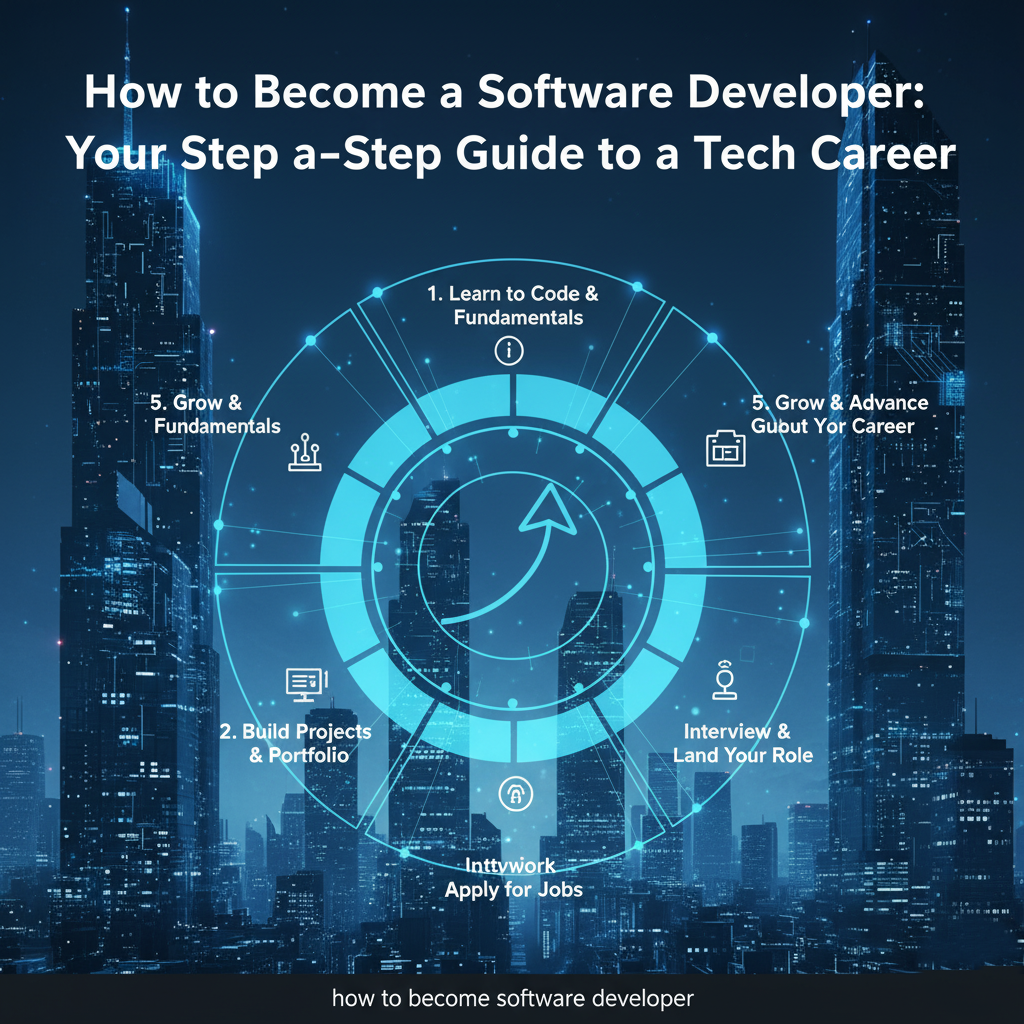Choosing a college major is one of the biggest decisions you’ll make, and it can feel incredibly high-stakes when your dream is to become a software developer. You might be asking yourself: Is there one “right” major? Do I even need a degree at all?
The good news is that the tech industry is unique for valuing skill and practical ability often as much as formal education. However, the path you choose will shape your foundational knowledge, your career opportunities, and the types of problems you’re equipped to solve.
This guide will break down the best majors for an aspiring software developer, from the classic choice to surprising alternatives, and help you decide which educational path aligns best with your goals.
The Gold Standard: Computer Science (CS)
For decades, Computer Science has been the default and most respected major for aspiring software developers. It provides the deepest and most comprehensive theoretical foundation for a career in tech.
What You’ll Learn:
A CS curriculum is designed to teach you how computers work from the ground up. Key areas of study include:
- Core Programming Concepts: Data structures, algorithms, and complexity theory.
- Software Engineering Principles: Design patterns, version control, and the software development lifecycle.
- Systems Architecture: How operating systems, compilers, and networks function.
- Mathematics: Discrete math, calculus, and statistics, which are crucial for algorithm design and machine learning.
Pros:
- Widely Recognized: Employers universally understand and respect a CS degree. It opens the most doors.
- Strong Foundation: The deep theoretical knowledge allows you to adapt to new technologies and tackle complex, abstract problems throughout your career.
- Versatility: A CS degree can lead to roles in AI, machine learning, systems programming, and more, not just application development.
Cons:
- Can Be Theoretical: Some programs focus less on teaching current, in-demand programming frameworks and more on foundational concepts, which means you may need to build practical portfolio projects on your own.
Ideal For: Students who want the most versatile and secure path, enjoy deep-dive problem-solving, and are interested in the “why” behind the code.
Excellent Alternative Majors
While CS is the top choice, it’s not the only one. Several other degrees can provide a direct path into software development.
1. Software Engineering (SE)
- Focus: If CS is the science, SE is the application. This major focuses directly on the processes of building, testing, and maintaining reliable software systems.
- What You’ll Learn: More project-based work, requirements gathering, team collaboration, and quality assurance.
- Best For: Those who prefer a practical, hands-on approach and want to mirror industry workflows directly.
2. Computer Engineering (CE)
- Focus: This major sits at the intersection of electrical engineering and computer science. It deals with hardware and the low-level software that controls it.
- What You’ll Learn: Digital logic design, processor architecture, and embedded systems programming.
- Best For: Those interested in working on hardware-adjacent software, like in robotics, IoT devices, or operating systems.
3. Information Technology (IT) or Information Systems (IS)
- Focus: Applying technology to solve business problems. The coding is often focused on scripting, integration, and building internal business applications.
- What You’ll Learn: Database management, networking, cloud infrastructure, and cybersecurity fundamentals.
- Best For: Future developers who want to work on enterprise software, become DevOps engineers, or act as a crucial link between business and technology.
4. The “Wild Card” Majors: Math & Physics
- Focus: These disciplines are built on intense problem-solving, logic, and analytical reasoning—skills that are directly transferable to programming.
- The Path: You will need to be highly proactive in learning to code on your own through projects, online courses, and internships.
- Best For: Highly motivated individuals who love abstract problem-solving and are targeting fields like data science, quantitative analysis, or graphics programming, where their mathematical prowess is a major advantage.
Do You Even Need a Traditional Degree?
This is the modern question. The answer is no, but it’s harder. Many successful developers have taken non-traditional routes.
Coding Bootcamps
- What they are: Intensive, short-term (3-9 month) programs focused on teaching practical, job-ready skills in web development or data science.
- Pros: Speed and focus. You can go from beginner to job-ready in under a year. The curriculum is tailored to what companies are hiring for right now.
- Cons: Cost and depth. Bootcamps can be expensive for their duration and often lack the deep theoretical foundation of a 4-year degree. The job market can be more competitive for bootcamp grads when entry-level roles are scarce.
The Self-Taught Path
- What it involves: Leveraging free and low-cost resources like online courses (freeCodeCamp, Codecademy, Coursera), tutorials, and books to build your skills.
- Pros: Ultimate flexibility and low cost. You learn at your own pace and on your own budget.
- Cons: Requires extreme discipline. You must create your own structure, find a curriculum, and build a network from scratch. Without a credential, your portfolio and proven skills become everything.
How to Choose the Right Path For You
Your decision should be based on three key factors:
- Your Learning Style: Do you thrive in a structured, theoretical academic environment (degree), or a fast-paced, practical setting (bootcamp)?
- Your Career Goals: Do you want to work in a cutting-edge field like AI (requires CS theory) or build web applications for businesses (bootcamp/CS/SE are all viable)?
- Your Resources: Consider the time and money you can invest. A degree is a 4-year financial commitment, while a bootcamp is a shorter, more intense financial commitment.
The Real Key to Getting Hired: Experience
No matter which path you choose, remember this: Your major gets you an interview; your portfolio gets you the job.
Focus on building tangible experience:
- Build a Portfolio: Create a GitHub profile and fill it with projects you’re passionate about.
- Get Internships: This is the single best way to gain experience and get your foot in the door.
- Contribute to Open Source: It’s a fantastic way to learn collaborative development and get real-world experience.
Frequently Asked Questions (FAQ)
Q: Is a Computer Science degree harder than a Software Engineering degree?
A: “Harder” is subjective. CS is typically more theoretical and math-heavy, focusing on the “why.” SE is more applied and project-based, focusing on the “how.” Choose based on which approach aligns with your strengths.
Q: Can I become a software developer with an unrelated degree?
A: Absolutely. Many developers have degrees in everything from music to biology. Your degree shows you can learn and commit. You will need to demonstrate your coding skills through a strong portfolio, personal projects, and potentially supplemental courses or a bootcamp.
Q: How important is the prestige of the school I attend?
A: Less important than you think. While a degree from a top-tier tech school is impressive, most employers care far more about your skills, portfolio, and experience than the name on your diploma. A great portfolio from a state school is better than a empty resume from an Ivy League.
Q: Should I double major or add a minor?
A: A minor in a complementary field like Mathematics, Statistics, or Business can be incredibly valuable and help you stand out. A double major is a significant undertaking but can be powerful for niche fields like computational biology or financial technology.
Conclusion
The best major for you depends on your individual goals, learning style, and circumstances. For a comprehensive and versatile foundation, Computer Science remains the top choice. For a more practical, hands-on approach, Software Engineering is excellent.
However, the field of software development is ultimately a meritocracy. Whether you choose a traditional degree, a bootcamp, or the self-taught path, your success will be determined by your passion, your perseverance, and the quality of the code you can write. Focus on building, learning, and creating, and you’ll find your way in.




